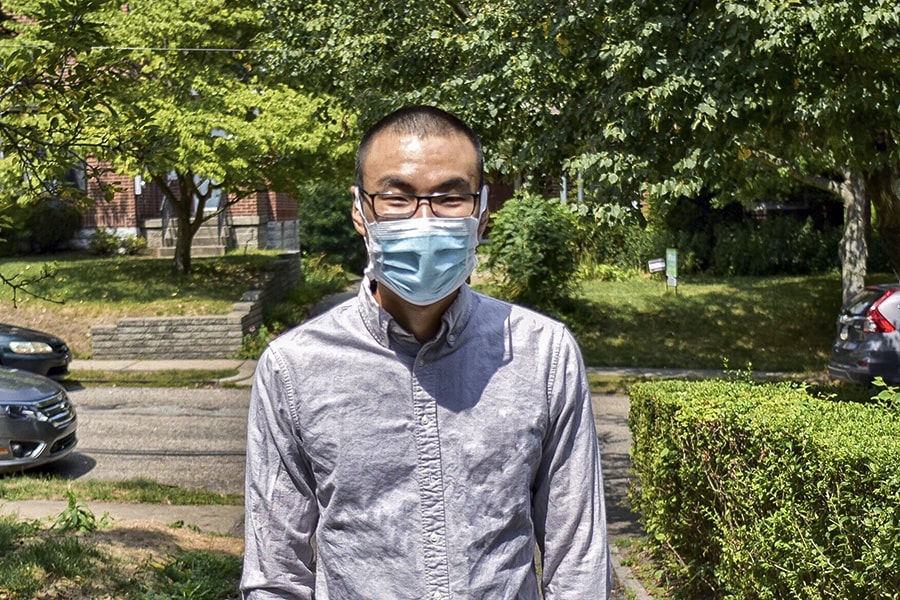
Student Studies State Pandemic Policies, Consumer Behaviors
By Heidi Opdyke
Media Inquiries- Marketing and Communications
- 412-268-1151
- Tepper School of Business
- 412-268-3486
As state governments managed their own responses to the coronavirus pandemic, Tony Xu was watching.
Xu, a senior in economics and mathematical sciences at Carnegie Mellon University, studies how U.S. government lockdown policies affect how people behave.
His work is supported by a Summer Undergraduate Research Fellowship (SURF) from CMU's Undergraduate Research Office.
Xu's first set of data includes the period between March and May 25 when the first stage of lockdowns ended and states had started to reopen.
"Now we are at a point where we need to include the data from late June to early July," Xu said. "The major thing is that we didn't expect the case numbers to increase so rapidly during that period."
Among his results he found some characteristics — such as political affiliation and level of education — correlate with compliance, or lack thereof.
"If you have a bachelor's degree or higher, you are more likely to be compliant in terms of your behaviors," Xu said. "If you have a high school degree or lower, you are more likely to go out."
He also noted that there is a negative correlation between consumer spending when COVID-19 cases increase and that this effect is more striking for households with higher income.
This fall, Xu said he aims to look at how different countries' lockdowns affected consumption along with a research partner, Qiao Shen, a senior in economics and statistics and psychology.
Laurence Ales, an associate professor of economics and director of Undergraduate Research in Economics, is advising Xu. Last summer Xu worked with Ales through the Summer Undergraduate Research Apprenticeship program where he helped translate Chinese regional economic data to U.S. standards.
Ales said he has been impressed with Xu's resourcefulness and grit.
Undergraduate research where students learn by doing and solve real-world problems is a core element of education at CMU. Economics combines components from fields such as math, statistics, computer science, political science, psychology and philosophy and mixes them with its own perspective on how people behave and make choices.
Ales said research embodies a higher level of learning. A student can be certain of having mastered a subject only when he can demonstrate an independent ability in conducting research.
"Economics is a highly dynamic subject — think about how the economy of today differs from the one of, let's say, six months ago," Ales said. "This means that many questions are unanswered. I think of this as good news as even at an undergraduate level a student can make a meaningful contribution."
While working remotely on his research Xu said that his approach hasn't changed much.
"For economics, as long as you have your computer and data you can do it anywhere," he said.